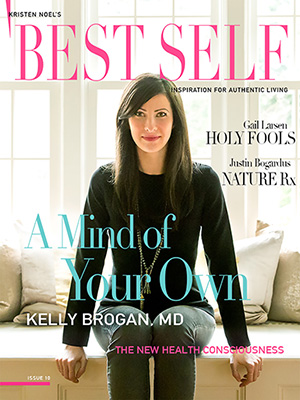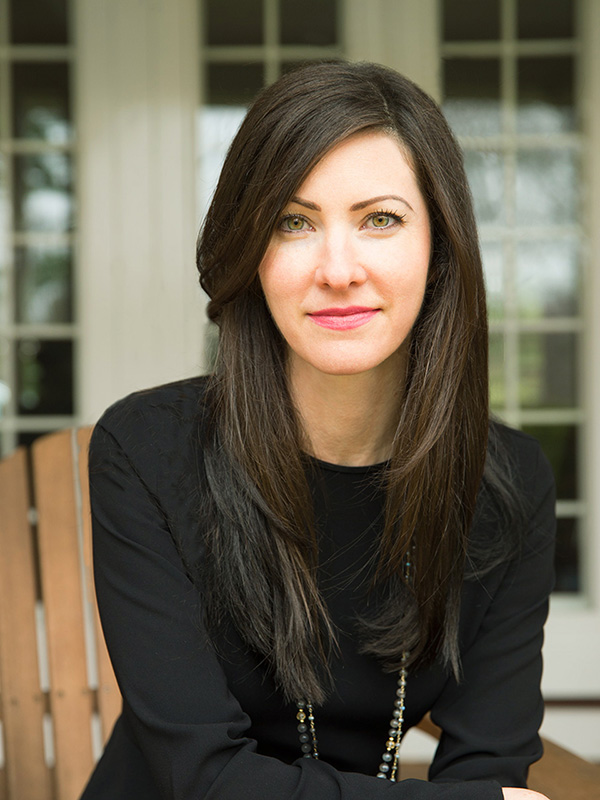
Kelly Brogan, MD
A Mind Of Your Own
Interview by Kristen Noel
March 24, 2016, New Canaan, CT
Photographs by Bill Miles
Release fear and all that it prevents you from doing. Instead, cultivate your intuition and combine it with this newly discovered knowledge and you will no longer be dependent on any medication, any doctor, or even any system. You’ll be in your power. This is the new medicine. It’s a revolutionary paradigm that makes the old one obsolete.
Kelly Brogan, MD
_______________________
Kristen:
Literally hot off the publishing presses, this book, A Mind of Your Own: The Truth About Depression and How Women Can Heal Their Bodies to Reclaim Their Lives, has caused quite a stir — perhaps not in the way you had envisioned.
Kelly:
[Laughing] That’s my specialty.
Kristen:
You make some pretty bold statements in this book. Let’s deep dive right into that. You speak specifically about depression, antidepressants, big Pharma companies, the present medical system, and the corruption of modern psychiatry. You say that, “Depression is merely a symptom, a sign that something is off balance or ill in the body that needs to be remedied.” And go on to say, “I’m convinced that the pharmaceutical industry and its bedfellows, have created an illusion of science where none exists, in the service of profit over professional responsibility.”
I couldn’t put this book down. It’s like a sassy medical text. And while this conversation of supporting our body’s innate wisdom may sound ‘woo-woo’ to some, like a conspiracy theory to others — I think this is a good time for me to introduce the fact that you have one of the most impressive resumes of credentials; you provide the science to back this up [holding book] to substantiate these claims.
You have studied cognitive neuroscience at MIT before graduating from Weill Cornell Medical College and completed your psychiatric training and fellowship at NYU Medical Center. You are board certified in psychiatry, psychosomatic medicine and integrative holistic medicine.
Damn Girl.
Kelly:
[Laughing] It’s an expensive trajectory.
Kristen:
You don’t even look old enough to have done all of that, but I digress. You are, additionally, one of the only doctors in the nation with these qualifications. I began with the claims you make in the book and back it up with the science, because everyone wants to know about the science. And girl, you’ve got the science and the education – and people are listening.
I want to start off by thanking you for writing the book, I want to thank your publisher for publishing the book, and now I want to move into thanking your grassroots movement.
Kelly:
Amen
Kristen:
The day after your book published, it sold out on Amazon. And now [at the time of the interview] we are 9 days in and on the way here this morning, I received an email notifying me that you will debut at #10 on The New York Times bestseller’s list.
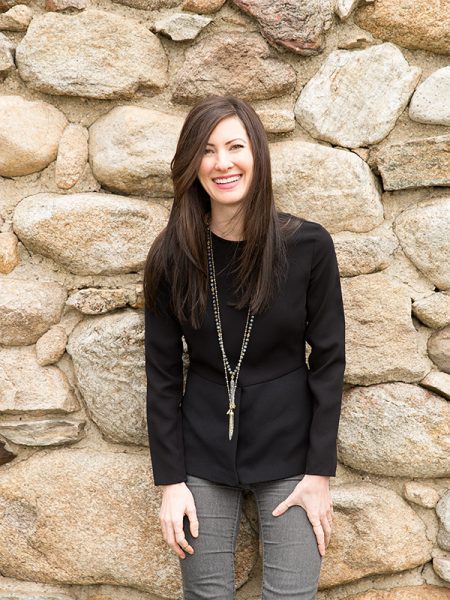
Kelly:
Yes. [smiling and high-fiving!]
Kristen:
Amen. We’re done here.
Kelly:
It’s shocking. And it really is not only a testament to the readiness of this information, but also the power of communication, communities and the Internet. The information is out there if you want it. We don’t need to be filtered and spoon-fed our information about our health from corporations with profit-bearing interests.
Kristen:
OK, let’s reel it back a minute. You have this incredible book in you, you get it out and get it to a fabulous publisher, they publish it immediately and everyone is all excited — everyone anticipates fanfare and coverage and then what happens?
Kelly:
Well, I actually anticipated this because I have been involved in the activism world for a number of years. I understand the concept of enmeshment, particularly around the fiduciary responsibility that some corporations have to their shareholders, and the fact that there is sponsorship for almost all of the mainstream media outlets by the pharmaceutical industry. I told Harper Collins don’t expect to see me on the Today Show, 20/20 and 60 Minutes.
Kristen:
How could we not expect to see you in mainstream media? So here’s the 60 million dollar question: This incredible information + this renowned publisher + this gorgeous woman with all of these remarkable credentials = what?
Kelly:
Crickets.
Kristen:
Crickets, crickets, crickets.
Kelly:
Not only were there crickets and ‘No’s’ — we got a very aggressive ‘No’ from one mainstream media outlet that said, “We’re going to do you the favor of telling you that if we were to cover this book it would be negative press.“
I appreciated that. Harper had never had that experience before. Everything happens the way it’s supposed to happen. It presented me with a beautiful opportunity to call on the people who resonate with this message, to call on my colleagues who are also working in the same arena.
We are all trying to create a space for people to engage this kind of approach to begin to collectively write a different story about our health in this country.
So it was actually an incredible uprising of positive energy.
Kristen:
In 9 days!
Kelly:
Yes. Within the first 30 hours it hit the top 20 books out of 8.8 million on Amazon. It had no business being there considering it hadn’t been mentioned on mainstream media.
Kristen:
Oh, it has every business being there — it just wasn’t following a conventional trajectory.
Was there a moment when this experience freaked you out or you may have been dismayed by the fact that you were being met with all of these ‘No’s’?
Kelly:
I’ve had quite a journey and in the past year have undergone what can only be described as a personal transformation. I’ve spent much of my life in what I describe as a masculine energy — very ambitious, productivity-oriented, very focused on controlling the narrative and architecting my success, my influence. I experienced the death of a mentor, Dr. Nicholas Gonzalez, in July of last year, and this event was one of those opportunities to begin to practice the art of surrender. I don’t really get stressed out anymore. It’s what I call the ‘maybe principle.’
Kristen:
…or ‘isn’t that interesting’?
Kelly:
Exactly. So even when things appear to be at the height of adversity, there is something in it that you needed and this couldn’t have been a better example.
Kristen:
When did you feel called and compelled to get this message out… and to really speak out about your findings with depression, and how that worked into antidepressants, drugs and that whole slippery slope?
Kelly:
I was raised in a very conventional family. We are not New-Agers, not hippies and I very much believed that perfect health was just a prescription away. This was absolutely my orientation. I was very much interested in mastering pharmacology. As a psychiatrist-in-training, that was really my focus — being the best prescriber I could possibly be.
I did a fellowship in, what was then a burgeoning field, called reproductive psychiatry. Essentially what that boils down to is that you specialize in prescribing medication to women considering pregnancy, pregnant or post-partum. I was pregnant during my fellowship and I remember having this feeling when I was writing a prescription for another pregnant patient. I was thinking — I would never want to take one of these medications.
Kristen:
A light bulb went off.
Kelly:
Yes, it was a weird dissonance because I spoke to her about the available literature, but something just seemed intuitively like I was missing a part of the story.
Kristen:
Oh the “literature” [mimicking a scroll], the literature that no one reads and simply throws in the garbage. It’s like listening to the pharmaceutical commercials on TV mumbling in the background.
Kelly:
Exactly.
It wasn’t until 9 months post-partum that I was diagnosed with an autoimmune condition called Hashimotos and I had that same intuitive hit — thinking, I don’t want to take a synthetic hormone for the rest of my life. I had the sense to consult a naturopath and she walked me through dietary change. I was beginning to consider things that I had never made time for, never even cared about — exercise, meditation, looking at strategic supplements. And within 6 months, my antibodies went from high to normal, and I was off of natural hormones within a couple of months after that.
This inspired rage within me. Hold on a minute, I’ve just invested hundreds of thousands of dollars, blood sweat and tears into a training and education that taught me that this was not possible. So now, not only have I seen that it’s possible, but I’ve experienced that it is possible. It’s my belief that experiential knowing is the most powerful wisdom to offer you a new perspective. Because you can read all the science you want all day long.
You can talk to all the people you want, but until you really feel what is possible — in terms of your own capacity for healing — you don’t really know what is available to you.
That’s when I knew that I was onto something that I needed to unpack. It sent me back into the literature. I’ve always been a data-nut, you can ask any of my colleagues. It has always interested me.
Kristen:
[smiling] So, you’re the one reading the literature.
Kelly:
Every Saturday morning for 11 years, I have been waking up to read NCBI’s (National Center for Biotechnology Information) — they’re abstracts — it’s like going fishing. I like to see what’s out there – what researchers are up to, what kinds of questions they are asking and you can really watch the trends. In the field that I am interested in now — Psychoneuroimmunology — when I first started out there would only be a paper or two, but now there are multiple every day.
I went back to the literature and unpacked what it was that I learned. That was a Pandora’s Box that I have never been able to close and I began to look into everything.
I began to consider the things I had taken — birth control, Advil. What about acid blockers, statins — what’s the fuller story? And I began to read books by pioneering intellectuals and researchers, doctors who were essentially asking the same questions. That’s where I was exposed to science that, in all of my training, I had never seen.
My practice evolved and I began to apply what I was learning to my practice. Taking my patients off medications, I began working with lifestyle interventions — the same ones that had healed me — and applying it to psychiatric pathology. I stopped prescribing. This was a couple of years ago.
Kristen:
You made a statement in the book that in hindsight you realized you had never healed anyone through a prescription.
Kelly:
Never. It’s management.
Kristen:
When you think about that — it’s daunting.
Kelly:
My absolute goal at this point is to get patients out of my practice [smiling]. I would consider it a failure to have a life-long patient! The idea is to transfer agency back to them, essentially inspire them with the fact that they have the tools that they need to go on and make wise decisions for the rest of their lives. It’s a very different model. This approach is in enough demand that at a certain point I had a 1-½ year waitlist in my practice in Manhattan. There’s no way for me to address how grossly limited the current model is in its outcomes and how many patients feel disenfranchised — and how many people are just curious about another approach.
That’s where it makes sense to create an affordable self-help option — that’s exactly what this book was intended to be; a vehicle to bring this information to a broader audience.
Kristen:
This book is like a Pandora’s Box for me — that’s the way I felt when I was reading it. The first Pandora’s Box for me was Goddesses Never Age, by Dr. Christiane Northrup.
Kelly:
Yes.
Kristen:
That set me off on this path with this notion that our bodies have this innate ability to heal themselves, which was really a concept I had never thought about. Further to that, when you delved into depression and said, “Psychiatry, unlike other fields of medicine, is based on a highly subjective diagnostic system – based upon your doctor’s opinion of the symptoms you describe. There are no tests. You can’t pee in a cup or give a drop of blood to be analyzed for a substance that definitely indicates that you have depression.”
You gave staggering statistics of how there are more than 30 million people taking anti-depressants in America. “We are spending more on antidepressants than the gross national product of more than half the world’s companies.”
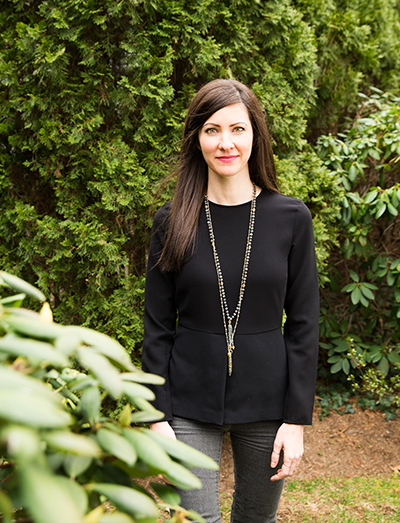
Kelly:
It’s become the panacea. I have no intention of maligning doctors. They are, by and large, very good people called to this field for the right reasons and they are doing the best that they can with what we are taught. 75% of antidepressants are written not by psychiatrists, but by internists and family practice doctors. You are with them for a 10-minute appointment and you tell them you have brain fog, you’re tired, you can’t motivate yourself, your mood is flat, you’ve gained 14 lbs. in the past 2 months, your hair’s falling out, you have bloating and gas. This is a level of complexity — syndromal presentations — that is so common today. These are the modern ills. They are far too complex to piece them together diagnostically in the space of 10 minutes. Plus, we are not given the diagnostic tools to contend with the new model of chronic illness.
It takes 17 years for the modern science to trickle into the doctor’s office.
Kristen:
Let’s stop there for a second – that was shocking. So, negative results come back from a drug study… and it takes 17 years for the data exposing the inefficacy to make it to mainstream?
Kelly:
Yes. There’s this disconnect between what we know about what people are struggling with today scientifically, and what doctors are able to offer their patients in terms of diagnostics and interventions. So, your doctor is just ill-equipped. Unless our doctors take matters into their own hands, to educate themselves from the primary literature, then they are only going to be able to work with what they learned in medical school, which is an outdated model.
We learned that you meet a patient’s distress, especially when there isn’t an obvious diagnosis — with an antidepressant…
It’s the best that they can offer in the given circumstances. In this way, psychiatry becomes the wastebasket for the limitations of the conventional model. But it’s my assertion that what we are calling depression, and by the way, the book is primarily focused on depression and anxiety, applies to every single mental illness. There is no carve-out — schizophrenia, bi-polar disorder, panic attacks, OCD, you name it. The conversation is the same. We have been trained, largely by media, and the vested interests of the pharmaceutical industry, to think of these as discreet disease entities; probably something you were born with, and are going to have to manage pharmaceutically the for rest of your life. Just the same way a diabetic has to take insulin, you have to take your mood stabilizer or antidepressant. It’s absolutely falling short. We are not getting them better. They are continuing to struggle and in many cases, they are actually doing worse.
Kristen:
Compounding — and resulting in other chronic illnesses.
Kelly:
Exactly.
Kristen:
About the system you said that the
“Western medical illusion – sets up a vicious system that ushers you into lifelong customer status, dependent and disempowered.”
And, “Based upon data from the British Medical Journal, The Journal of the American Medical Association, and the Centers for Disease Control, it has been found that prescription drugs are the 3rd leading cause of death after disease and cancer.”
[hands in the air] This is a vicious cycle.
Kelly:
Yes. Prescriptions beget themselves. When you take a prescription — let’s look at an acid blocking medication, for example — let’s say you are offered Prilosec or Pepcid, because you are eating something that you probably shouldn’t be eating. Instead of someone identifying the root cause of the issue, you are given one of these medications to suppress the symptoms of poor digestion. So unfortunately, one of the documented problems with this intervention is that you can develop specific micronutrient deficiencies, like B12 deficiency. It also happens to be documented that B12 deficiency can be at the root of not only depression, but at the root of psychotic depression (patients who hear voices and experience paranoia). It is totally reversible through B12 replacement, but could have been avoided all together by dietary adjustment. And these patients not only end up on these antidepressants, but on augmentation strategies including anti-psychotics.
You can see the domino effect. And what really fires me up is that I just believe that everybody deserves the fullest picture of information before making a healthcare decision. That’s it. Then everyone is free to do what feels right to them, whether that’s prescription drugs or otherwise: They should be able to pursue that… but only in the fullness of what we call ‘informed consent’.
Kristen:
There’s this disconnect. You talk about how patients who come to you and are already on antidepressants, often say they have this side effect or that side effect, are depressed, can’t sleep and are experiencing a slew of other things. Speaking specifically to depression, antidepressants and drugs, you have a protocol — as you say, to ‘unpack it’, and peel back the layers. You want to shift them into a new conversation where you are connecting them as a whole. I love that term you use — ‘lifestyle medicine.’ You explore what the intake is: From food to nutrition, what one is putting on their body, what products are being used in their house, what chemicals they are exposed to.
Kelly:
The most important foundational principal is the mindset. The mindset that I grew up in, which was absolutely foundational to my conventional training, is this: The body is fundamentally flawed. It’s like a minefield of dangerousness just waiting to explode and we need to manage it. We need to dominate it and commandeer it in such a way that it knows who’s boss. So if it gets diarrhea, we’re going to get rid of that. If it gets hair loss, we’re going to deal with that. It’s a constant battle — a warring posture. So in that model, intervening with chemicals that are offered to us as the product of science, the product of laborious efforts on the part of intellectuals, researchers and scientists… it makes sense.
Kristen:
It’s Band Aids.
Kelly:
It’s Band Aids. It could be Band Aids on a festering wound.
Kristen:
Big Band Aids.
Kelly:
Sometimes the analogy that is used in functional medicine is that it’s like taking a Tylenol for a shard of glass in your foot. There actually is a way to take it out — wouldn’t you prefer to do that? So the alternative mindset is one in which we sort of sit back for a moment and take a look at the many elements of progress that have come from technology and scientific exploration. There have been a lot of costs and we have traveled too far down a path that is beginning to have diminishing return. This mindset has compelled us to appreciate our connection to the environment and to nature.
The most poetic element — and what science is bringing to our awareness — is that what we always thought of as ‘out there’ — bugs and germs, nature over there – we now understand is our inner ecology.
Kristen:
[singing] Microbiome!
Kelly:
Exactly! No longer can we just war against the enemies. The enemies are inside and not only that, they are very much controlling every aspect of our health and wellness. So this model is really the only appropriate perspective, in my opinion, since the completion of the Human Genome Project about 10 years ago. This gave rise to epigenetics, the idea that we can dramatically alter our genetic destiny — how our genes express themselves. So in this case, what we have been previously told doesn’t matter, what I was taught in my training doesn’t matter.
Kristen:
Can you get a refund from those schools?
Kelly:
[laughing] Right, seriously?! It’s amazing because we were taught that everything is genetic. The embedded implication is that nothing that you do matters. You need the system to fix your unfortunate genetics.
Kristen:
[sarcastically] I need a few prescriptions to get me back on track.
Kelly:
Seriously!
Kristen:
But what is really exciting about epigenetics is that our heredity is not a foregone conclusion, dispelling the myth, that for example, If my father has this, it’s going to express like this for me, too.
Kelly:
Yes. It gives you the past you were looking for. And I don’t believe that there is a carve-out formula here. When people talk about breast cancer genes that other people feel are their destiny, coded in the DNA — it’s absolutely not the case.
Kristen:
Look what’s happening in that sector — they are doing prophylactic mastectomies and hysterectomies.
Kelly:
Yes, and it’s based upon the presumption that we have unlocked the truth of the gene-to-illness linear relationship. It’s anything but. In fact, what we are finding is that all of these environmental exposures speak to our genes. Every single bite of food that you eat speaks to your genes. It’s called nature genomics, an entire discipline. Again, it takes so much time for this to trickle into conventional consciousness.
Kristen:
Another quote from the book: “One-size-fits-all medicine is no longer appropriate, and we just don’t know how to determine who might be at risk for adverse effects, ranging from psychiatric conditions to death.”
Kelly:
This is what, in many ways, made me put down my prescription pad. We are learning so much about biochemical individuality – which is this idea that you can be born with, or manifest through environmental exposures, variance in the way that you metabolize drugs, variance in the vulnerability in terms of your hormones, immune system and gut function. We just don’t have the tools yet to determine how an individual would respond to a pharmaceutical chemical.
Kristen:
Particularly if you are taking something else.
Kelly:
Particularly. Or have an underlying, undiagnosed illness. The most harrowing manifestation of this in psychiatry really isn’t making the news media yet… and it’s around impulsive violence, including homicide.
Kristen:
Look at all of the violent crimes in schools the past few years.
Kelly:
Initially, I thought that making those connections was so sensational.
Kristen:
And what about the patient: You are depressed, you start on the medication, you are further depressed. You don’t think it’s the medicine — you think it is you.

Kelly:
You blame the illness.
Kristen:
You point out the connections between the gut, the food we intake and how that is expressing itself within us. That leads me to another exciting message in the book — that we can reset the microbiome.
Kelly:
We’ve been told a story about depression as a chemical imbalance — you were probably born with it — you probably have some serotonin deficiency going on and you need a chemical. The truth is that we just aren’t able to confirm that there is any validity to that. The literature itself has moved in a different direction in the past 20 years — and we are just beginning to hear about it in the collective consciousness (remember that 17-year gap we spoke of earlier).
Kristen:
We have to talk about inflammation.
Kelly:
Yes. It’s part of the gut picture. If we look at depression as an inflammatory disease, then what happens when the body feels under siege chronically?
When we look at what do we do about inflammation, according to the science, the relevance of the ecology in our gut is foregrounded. We understand that one of the major drivers of inflammation is dietary exposure.
Kristen:
OK, so let’s just go back and describe what inflammation is.
Kelly:
Essentially, it’s a messenger system in the body, an alarm bell. It can be triggered by many different things: Psychosocial stress, perceived stress, chemical exposures that we are poorly adapted to deal with and include the 100,000 un-cited chemical exposures in our environment including pesticides, plastics and industrial chemicals — there’s a long list.
Kristen:
It’s all in the book!
Kelly:
[laughing] …it can also include dietary exposures, particularly processed foods that are not recognizable to our immune systems and to our gut. It can also include infections.
Kristen:
Inflammation is good in the healing process though, right?
Kelly:
Inflammation is totally necessary.
Kristen:
Let’s make the distinction. There’s ‘good’ inflammation when the troops come in and try to heal something, for example, a wound or a cut. Then there is inflammation that gets triggered by something like chemicals and if there is nothing to heal, the inflammation can go after healthy cells.
Kelly:
Right, but it’s in the persistence of it. Stress and inflammation, ancestrally, were always an on/off phenomenon. Meet the demand then recover. Now we only have ‘on’ — and this is part of the problem. It’s becoming maladaptive.
I have no doubt that given more time, we would actually equilibrate to this very sick planet we are living on.
The body has infinite resources. We are just in this awkward transition of struggling, because of the symptoms of chronic inflammation. And the reason that one gets depression and another gets cancer is not something we have the answer to.
Kristen:
When did we lose touch with wanting to live a vibrant life? When did we get into this rat race and forget that it is our God-given nature to live peacefully, to not be in that constant pressure cooker, to ingest healthy food? People forget their role and power in the equation: What are you doing? Why are you eating that? What can you do differently?
You can actually press that reset button.
Kelly:
I love this point. Many patients that I see are still in the symptom suppression mindset. That’s the American way. Get rid of the symptoms, your body’s annoying, it’s getting in the way.
Kristen:
And let’s get a quick fix [snapping fingers]
Kelly:
Yes. Let’s get a quick fix and get back to work.
Kristen:
[sarcastically] I don’t have time for this.
Kelly:
So you end up waking up, going to work, coming home — repeat, until you die. Is that what you are really here to do? Probably not.
Kristen:
And eating some processed food, drinking some wine as you do it.
Kelly:
…numbing the pain.
Kristen:
Self-medicating on top of your prescriptions.
Kelly:
My hidden agenda with my patients is — yeah, let’s alleviate your symptoms (which is actually pretty easy to do), but then…
Let’s see if we can shift your mindset so that you can shed some of your fear, so that you can feel into what the hell you are here to do.
Kristen:
Even if it is only 1 thing. I always say, take 1 step, do 1 thing in the direction of a self-supportive shift and watch what unfolds. People always make excuses: I don’t have time, I can’t afford this, etc. We can all make 5 minutes to meditate, 5 minutes to exercise, etc.
Another thing that I totally related to when I was reading the book brought me back to my 20’s. At the height of my modeling career, I was depressed. Looking back, I just chalked it up to being in my 20’s and being dramatic. However, when I think back, I remember eating a bagel and double cappuccino for breakfast every day…
Kelly:
Enough said.
Kristen:
And I was on the birth control pill. As I was reading your book — it was as if one red flag after another was popping up. That said, I didn’t have the information then to think that any of these things that I was ingesting were contributing to my depression. Maybe it’s oversimplifying it…
Kelly:
It’s not oversimplifying it! And in fact there are randomized trials that are looking at how gluten can cause depression. It can be that simple. But what’s interesting here is that you began to think, ‘it’s me.’ You thought I’m sick or mentally ill.
Kristen:
I never realized that my breakfast of champions — this diet and this chemical I was ingesting — could have been impacting not only my mental state, but my microbiome.
So walk us through what you do with your clients.
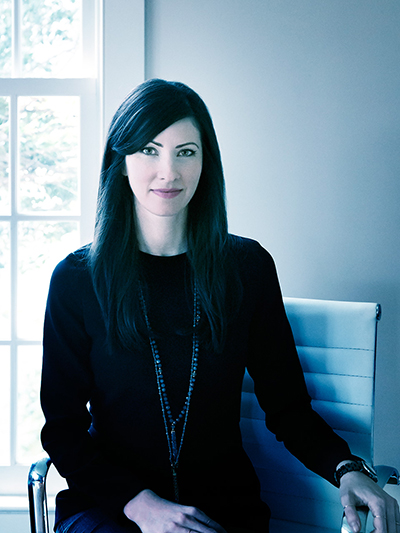
Kelly:
The real needle-mover in my experience for most people is in taking dietary change as a medical prescription. The reason that I think it’s powerful is because food has information that speaks to our genes and we know that within days we can shift our microbiome. And I know it works.
Kristen:
That’s remarkable.
Kelly:
So you trash your body for 30 or 40 years and in a couple of days you get a pass — how amazing is that?! It’s like a gift.
Kristen:
I know that this is a much more accepted conversation now, but I just want to make sure that everyone knows what the microbiome is.
Kelly:
We learned that we are teeming with bacteria, virus, fungus and other things — all of these microorganisms.
Kristen:
“Take care of your bugs and they will take care of you”, as you said in the book.
Kelly:
That’s right. We have to work with them. So when we look at antibiotics, hand sanitizers, vaccines — when we look at all of these ideas of us vs. the germs — we’re beginning to learn that this is how we are making ourselves sicker. We need to cooperate with these organisms, in and around us, literally — if we are going to achieve any measure of health. There’s actually research on what are called psychobiotics, which are probiotics intended to have psychiatric effects. There are randomized trials looking at probiotics for anxiety. After 30 days, patients who otherwise would’ve been on Zoloft for life, are feeling better.
Kristen:
Again that’s connecting the gut-brain biology.
Kelly:
I think everyone intuits that the brain speaks to the gut. We’ve all been nervous, felt butterflies.
Kristen:
…had a ‘gut feeling.’
Kelly:
This brain-to-gut direction makes sense to us [gesturing downward]. But what we are learning about now is the gut-to-brain communication [gesturing upward].
That’s why diet becomes a massive tool. When I meet with patients, I foreground the dietary intervention. You don’t get a second appointment if you don’t partake.
Kristen:
She’s a tough cookie. But honestly — you are walking the walk and talking the talk, because you know it works.
Kelly:
It worked for me, so I know it firsthand.
Kristen:
And you are not going to compromise that. Rather than solely finger-pointing and calling out — you are handing out sustainable and tactical solutions: A 30-Day Action Plan.
Kelly:
Yes — and the dietary piece is a ‘No Compromise Enterprise.’ So if you are not ready today — wait until you are. You have the menu. You have the tools. When you are ready — it’s a month of your life. And it’s not that bad.
Kristen:
So tell them — we get rid of gluten…
Kelly:
First I like to focus on what you are eating. [smiling] Of course, there’s a focus on sourcing – looking at pastured animal products, organic produce – foods that are high-nutrient density and very low in potential to provoke your immune and inflammatory systems. In literally the space of a week-and-a-half, you can be liberated from an array of blood sugar-related imbalances – feeling irritable, jittery, nauseous, headachey, brain foggy, etc. This is also a red meat inclusive diet
Kristen:
That was surprising to me.
Kelly:
I know. I was an ethical vegetarian for years before I ever moved into this dietary arena — so certainly, I have no interest in coercing anyone who has ethical opposition to eating animal foods. But if you are wondering what would be the most beneficial diet for anyone who is suffering from depression, hypothyroidism, autoimmunity — brain fog, chronic fatigue, fibromyalgia, these kinds of symptoms… this is it. And I can almost guarantee you that you will see a change in 30 days.
It also includes poultry, eggs (including the yolks), starchy vegetables — sweet potatoes, plantains, taro, nuts and seeds, cruciferous vegetables — broccoli, cauliflower that sort of thing. There’s a lot of natural fats — coconut oil, clarified butter called ghee, and other vegetarian sources like avocado and olive oil.
This is what you focus on — and it ends up being delicious. This is food that makes you feel full.
You should actually rediscover a simple, healthfully neutral relationship to food.
You are taking out so many addictive foods that you just eat when you are hungry and you move on with your day… and you enjoy the experience.
That was not how I used to eat. All I used to eat was addictive foods. We are removing foods that can push and pull on your immune system and literally pull on your brain. We are learning that the proteins in wheat and dairy actually have brain level effects at the opiate receptors. Not only do we now understand why they are addictive, we understand how and why they can generate behavioral and mood symptoms.
I ask patients to take out all grains — although long term, all of my patients eat gluten-free grains, I do too. But for the month, to move the needle dramatically and to teach yourself what is possible through nutrition, I think it’s important. We take out all dairy – admittedly, that’s a tough one. That was a hard one for me, especially since it’s such an addictive one. But it’s worth it — especially if you have any digestive issues. We are also taking out legumes: beans, peanuts, soy. For most people that’s not so difficult, but then we are taking out sugar, coffee and alcohol.
Kristen:
Ooooh, that’s a little tough. You also took out tea.
Kelly:
Yes, mostly because it has diuretic effects. Hydration is a really big part of brain function and digestion. For me, if I’m drinking tea, I’m not drinking water. So to be able to hydrate sufficiently for optimal neurotransmission, detox and digestion — it’s probably best to focus on filtered water for the month. That’s really the call to action.
Kristen:
The menus were great. They’re not that restrictive.
Kelly:
It’s not a 30-day juice cleanse!
Kristen:
In our house, we eat fairly close to that anyway, but clearly there are some things on that list that need to come out.
Kelly:
Not necessarily. Not everyone has an issue with cow dairy for example, certainly not goat and sheep dairy either. This is a therapeutic intervention intended to be an opportunity to bio-hack — an opportunity to teach yourself about your relationship to diet. Again, it’s one month of your life. Give yourself that opportunity. Unless you are really dedicated to this, you are never going to be able to connect the dots and will always be wondering, what should I be eating? There are so many people struggling in this limbo and there is really a simple way to clarify it.
Kristen:
This is such a gift to self — for anyone who is struggling in any way. This doesn’t have to pertain to an illness per se, it could be utilized for a struggle with stress, apathy, lack of passion, feeling stuck in the daily grind — for a reboot.
Kelly:
When I began to learn of some of the concerns with antidepressants, I started taking patients off of antidepressants. And when I didn’t lead with diet first, it was a horrible experience for patients and for me. When I began first with diet and didn’t touch prescriptions in terms of tapering them, until we had a month or two of dietary change under their belts, it was a completely different game.
So what does that mean? It means that you can confer a degree of resiliency. Resiliency means you can handle anything. It means that everything is going to be fine. And whatever comes your way – you’ve got it. And you are offering that to your body when you lead with nutrition.
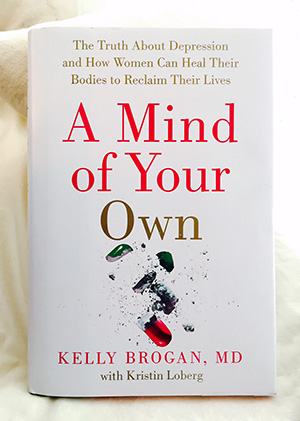
Kristen:
So, a mind of your own…
Kelly:
Get one!
Kristen:
You have 2 young girls.
Kelly:
[laughing] Yes, it’s amazing we haven’t heard them yet.
Kristen:
What is your vision for their world and their healthcare and how do we get there?
Kelly:
That’s a beautiful question. This work is obviously inspired and dedicated to them. I went through a very dark period where I looked around at how toxic this planet was, how corrupt our various systems from agriculture to pharmaceutical were, etc. I felt really hopeless and thought, How are we ever going to get back on track? Once you understand where we should be and where we are, it can be very distressing. And then I shifted my mindset.
I actually feel inspired that we are at a very important time in history, where there is a readiness, a fertile soil for change.
And not just about reverting back to where we have been — it’s about moving somewhere that takes the best of what we have learned and the technology that does exist, and integrates it into a higher consciousness around our connection to the environment and respecting this planet. It’s about understanding that what’s good for me, what’s good for you and what’s good for the planet — are all the same thing. And reconnecting to communities — understanding it’s not about warring and fighting.
Kristen:
We are connected. That is such a beautiful sentiment — the notion that your girls will ask questions as opposed to…
Kelly:
Taking what they are given. Yes, because unfortunately that can be dangerous.
Kristen:
If we can just shift that conversation for our children, to give them their voices — or perhaps I should say, remind them of their voices — to have them ask questions of themselves – what’s going on within me right now, why am I feeling this way, or what can I do about it, or what is it trying to tell me, or in your words, what opportunity is it presenting to me?
Kelly:
And to really be wary of the quick fix.
Kristen:
I think I got through 1 page of 400 notes….
Kelly:
[big laughs]
Kristen:
This is a gift [holding book]. And I’m so excited about how our paths crossed, literally the day you released your grassroots movement. And I’m thankful to the friend who sent me a message telling me, You’ve got to check this out. She was so right, because I think this message is going to take flight and has broad reach. I don’t care what mainstream media did last week, I think you have a very powerful message that is going to go very, very far… one that I thank you for.
Thank you for writing this. I thank you for sitting down with us. Just rock on!
___________________________
*Editor’s Note: A Mind of Your Own is dedicated, “To the legacy of Dr. Nicholas Gonzalez and to all of the light workers who illuminate the path for my daughters and everyone’s daughters.” Dr. Gonazelez was Kelly’s dear friend and mentor, who suddenly passed away in July 2015. His work was revolutionary as a pioneer in the field of alternative cancer treatment.
We celebrate his life and his work illuminating a new conversation, for illuminating Kelly, and we know he is smiling down upon her and this book. We have included Kelly’s beautiful tribute to Dr. Gonzalez here as tribute to their partnership in the new story of our own health.
Take a look inside Issue 10 — click the image below:
